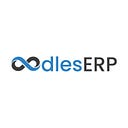Technological Developments That Are Transforming ERP Applications In 2021
The demand for ERP applications and enterprise resource planning continues to expand and evolve at high speed and shows no sign of slowing down.
Business leaders are converting their ERPs from soiled on-site systems to digital core-based cloud-based ERP applications, providing real-time access to transactional data. For them, the cloud is providing a roadmap for enterprise-wide digital data transformation. In order to help increase efficiency, produce better ideas, prepare superior plans, boost decision making, and induce cost savings, it infuses knowledge and vibrant new business models.
In 2021, the ERP would contain innovation developments that would generate sustainable value for the new system and for the companies implementing it.
5 Emerging Trends In 2021 For ERP
For ERP software, the rapid development in technologies is crucial to ensuring that companies maintain consistency with the changing speed of industry and remain ahead of the market. The new developments in ERP software improve the capabilities of the software and open up new market possibilities in the enterprise.
1. Rapid Cloud Adoption
Moving to cloud-based ERP applications is nothing new. Yet this is one of the game-changing developments that keeps leading. In the past, on-site implementations were offered as ERP applications whose start-up fees and hardware expenses made the device too pricey for medium and smaller companies. In addition, ERP users were concerned about putting their company’s data in cloud storage.
As cloud computing technology has begun to optimize, more suppliers are joining the cloud hosting sector, making ERP solutions more available to small and medium-sized enterprises (SMBs).
As they no longer have to think about investing in costly resources to maintain and keep their systems upgraded, more companies prefer to transfer their business data to the cloud. SaaS solutions are going to dominate the ERP market because of this success.
2. Artificial Intelligence Incorporation
A relatively recent technique in the ERP industry is Artificial Intelligence (AI) and machine learning (ML). It provides businesses with revolutionary data processing capabilities when AI technology is combined with an ERP system and converts business data into actionable insights.
Earlier, to gain access to the advantages of intelligence and automation, ERP users had to install different AI add-ons on their systems. But now, it is becoming increasingly popular for ERP solutions with built-in features.
AI technology bridges business and functional silos by being linked to ERP systems. To help users make educated choices, work quicker, and avoid making several errors, it uses intelligent analytics. This frees up the productive time of workers, which they can use to perform more important duties.
Overall, when combined with ERP, AI technology increases business effectiveness, and competitiveness.
3. ERP In a Mobile Application
We live in an age that believes in obtaining knowledge instantaneously. Similarly, the workforce of today often wants to access company data when they need it.
This need is met by a mobile-ready ERP solution. One of the trendiest innovations that a modern ERP solution needs to provide is full mobile support. In addition to providing on-the-go access to business data, these ERP applications also allow users to handle business processes through tablets and smartphones with internet connectivity at any time and anywhere.
Mobile ERP software facilitates departmental and vendor/supplier coordination. This reduces the probability of delays in operations and minimizes business losses. In order to drive growth, increase agility, and control costs, businesses that choose to adopt this technology will have an advantage.
4. Customized Features of an ERP
Having a strong ERP system alone is not enough. In order to instill exceptional operational efficiency and experience superior development, it needs relevant features.
The modular approach earlier allowed ERP solutions to fit the requirements of smaller organizations. Another move forward was taken by this trend. Now, ERP solutions have tailored features that support unique business needs.
This does not mean, however, that every ERP program is designed from scratch; instead, the systems are available in industry-ready models that can be tailored to specific business requirements. Needless to say, it will remove unwanted features that add up to program deployment and maintenance expenses with a custom ERP solution.
5. Strong Added Analytics
Reliable support for data collection and organization has always been supported by ERP software. It has become a more powerful tool as new ERP software systems, unlike previous technology, are now natively equipped with powerful data analytics tools to help businesses rapidly make data-driven decisions.
These ERP systems are able to process structured and unstructured data from different departments in the future and thus store all the requisite information available to evaluate future business developments in a predictive manner.
We provide complete ERP software solutions to address complex enterprise challenges by developing and implementing tech-driven enterprise modules. Our custom ERP development services enable enterprises to enhance their productivity and streamline inbound/outbound processes. For more information, contact us at erp@oodlestechnologies.com.
